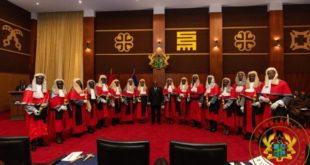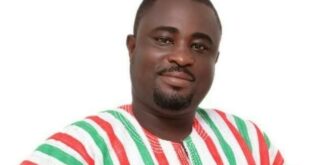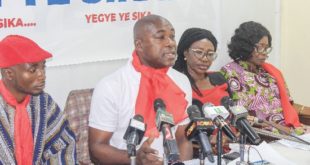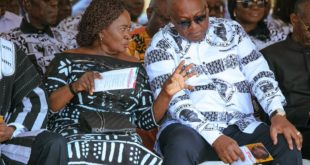Nigeria, the largest democracy in Africa, has a new president who used his inauguration speech to propose a significant policy change that will relieve pressure on the country’s finances.
According to Bola Tinubu, the long-standing subsidy on petroleum goods has been eliminated. He declared before a crowded audience in Abuja, the nation’s capital, that the fuel subsidy was no longer present.
With the promise of restoring optimism, he won contested elections; nonetheless, he now faces significant economic and security concerns.
Ending the subsidy will cause the price of gasoline to increase and could have an impact on other prices, however it is unclear when the new policy will go into force.
The 1970s-era subsidy has been attempted and failed to end by previous Nigerian governments.
Nigeria has a wealth of oil, but it cannot refine enough crude to satisfy local demand; as a result, it imports petroleum products, which are then sold at a price established by the government.
However, the subsidy significantly depletes public funds. It ate up 4.3 trillion naira ($9.3 billion; £7.5 billion) in the previous year, and 3.36 trillion naira was planned for it in the first half of this year.
According to Tinubu, the subsidy is no longer necessary and the money would be used to build public infrastructure and enhance people’s quality of life.
Tinubu, 71, succeeds Muhammadu Buhari, who resigned after serving two terms in office.
Pressure is mounting on the new president to address the economic situation.
One in three people are unemployed, inflation is at its highest level in almost 18 years, and the productivity of the crucial oil industry is declining.
In his speech, Tinubu acknowledged these difficulties and promised to unveil his team’s economic blueprint in the upcoming weeks, but he also criticized the high interest rates.
With 37% of the vote, he won the February election. Peter Obi of Labour received 25% of the vote, and his main competitor Atiku Abubakar received 29%.
The two opposition candidates are arguing against Tinubu’s victory in court.
They claim that the result was altered.
However, Tinubu claimed that he was “spreading his hand across the political divide” and praised the quality of the election, saying it was fiercely contested and better than previous ones.
Additionally, he mentioned the importance of women and young people in his administration and made hints about hiring more security professionals to address the security situation, which includes kidnappings for ransom.
His supporters claim he will lead the large nation of more than 200 million people with the same technocratic and considerate approach as the former governor of Lagos, who revitalized Nigeria’s commercial capital – no simple task.
But the new president’s detractors assert that he no longer possesses the drive necessary to forcibly modernize Lagos.
Source: Ghanatodayonline.com
 Ghanatodayonline.com News, Politics, Health, Education & More
Ghanatodayonline.com News, Politics, Health, Education & More



